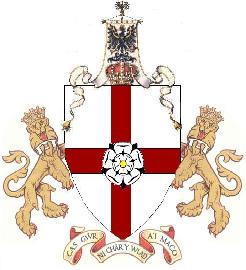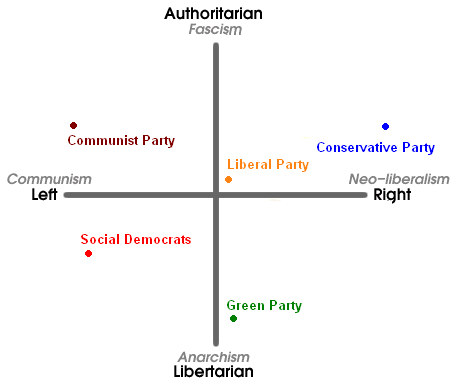Cascadia
| Cascadia | ||||||||
|---|---|---|---|---|---|---|---|---|
| ||||||||
| Info: NSEconomy RC XML |
Welcome to Cascadia
This region is a true constitutional monarchy. All decisions affecting how Cascadia is run, as well as how the delegate votes on UN resolutions, are administered through our off-site forum.
Contents
History
Definition of Cascadia
Cascadia is a geological, ecological and climatic region of North America. It is generally bounded by the Cascade Range and the Pacific Ocean, but interpretations of the region often include other areas as well. Its ecoregions are distinct from those of the more arid lands to the east and south, and so its agriculture and forestry also vary.
It is often claimed that the region also has a shared political culture. In his book Nine Nations of North America, author Joel Garreau claimed that the Pacific Rim region he called Ecotopia had a different culture from that of what he called The Empty Quarter to the east, and was necessarily different economically as well as ecologically. It must be noted that the concept of "Ecotopia," which is specific in its boundaries, does not identically match that of "Cascadia," which varies in its definition.
Pre-Consolidation Era
Origins of Yorkshire-Königsberg
he family first came to prominence with their creation as Dukes of Yorkshire in 1189. The family advanced over the course of the Middle Ages, being made the dukes of Königsberg in 1563.
The family split into two branches, the Catholic Chambers and Protestant Schofield. The Chambers branch ruled the area of Yorkshire until their eventual extinction in 1869. The Schofield branch was comparatively more successful ruling over the area of Königsberg. Branches of the Schofield line ascended the throne of Saxe in 1415 and of Altenburg in 1527. The union of these two Schofield lines in 1618 allowed the creation of the Grand Duchy of Saxe-Altenburg in 1701.
In 1869 the vacant duchy of Yorkshire was offered to the Schofield branch of the family. The Schofield family in turn took the secondary surname of Yorkshire-Königsberg.
The Consolidation of the Cascadian Kingdom
See "Yorkshire-Königsberg" for more in information on this topic and the royal family of Cascadia.
June 2006 Election
| Party | Leader | % of votes | # of votes |
|---|---|---|---|
| Social Democrats | Penconia | 44.44% | 4 |
| Liberal Party | Grande Selkrai | 33.33% | 3 |
| Communist Party | Havarax(stepped down during election) | 11.11% | 1 |
| Conservative Party | Saxe-Altenburg | 11.11% | 1 |
| Total | n/a | 100% | 9 |
Following the election Penconia formed the first Government of cascadia
Politics
Royal Family
The Royal house of Yorkshire-Königsberg presides over the throne and thus Head of State, but this is a purely Ceremonial role.
| Styles of The King of Cascadia | |
|---|---|

| |
| Reference style | HRH |
| Spoken style | Your Royal Highness |
| Alternative style | Sir/Ma'am |
Political Parties
Cascadia has numerous political parties all over the spectrum. The following section shows the reader the ideological alignment of the parties of Cascadia.
| Party | Leader | Ideology |
|---|---|---|
| Conservative Party | Saxe-Altenburg | Conservatism/Right-wing |
| Green Party | New Erikland | Eco-Capitalist |
| Liberal Party | Grande Selkrai | Social Liberalism |
| Social Democrats | Penconia | Social Democracy |
| Communist Party | Vacant | Marxism-Leninism |
Cascadian Conservatism
Cascadian Conservatism is characterised by a free market economy, monetarist economic policy, privatisation of state-owned industries, low direct taxation but conversely higher indirect taxation, opposition to trade unions, nationalism, centralism, as well as checks on the size of the Welfare State and local government. "Cascadian Conservatism" may be compared with Thatcherism, Reaganomics, Rogernomics and Ruthanasia. It is deeply in favour of individualism rather than collectivism, with a mantra for self-help.
Eco-Capitalism
Eco-capitalism is one of several strategies of the green movement and Green Parties. Its central idea is that capital exists in nature as "natural capital" (self-renewing productive ecosystems that have a measurable ecological yield or tangible benefit to humans) on which all wealth depends. Other forms of capital that are created by humans (like infrastructural capital and financial capital) simply extend and optimize this natural capital with creativity, training and trust.
Social Liberalism
Social liberalism is a political philosophy that emphasizes mutual collaboration through liberal institutions. Social liberalism, as a branch of liberalism, contends that society must protect liberty and opportunity for all citizens. In the process, it accepts some restrictions in economic affairs, such as anti-trust laws to combat economic oligopolies, regulatory bodies or minimum wage laws, intending to secure economic opportunities for all. It also expects legitimate governments to provide a basic level of welfare or workfare, health and education, supported by taxation, intended to enable the best use of the talents of the population, prevent revolution, or simply for the perceived public good.
Social Democracy
Social Democracy emphasises a program of gradual legislative reform of the capitalist system in order to make it more equitable and humane. Cascadian Social Democrats support the "Swedish Model".
Marxism-Lenninism
Marxism-Lenninism seeks to establish a future classless, stateless social organization based upon common ownership of the means of production.


